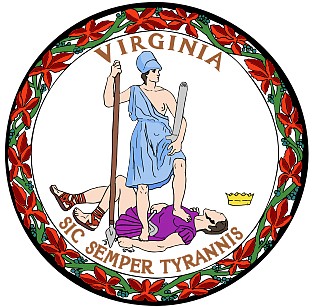Virginia voters approval constitutional amendments, local referendums
Jeremy M. Lazarus | 11/5/2020, 6 p.m.
Yes, to allowing a 16-member commission to undertake the chore of drawing new political maps.
Yes, to exempting totally disabled veterans from the local personal property tax on one vehicle.
Yes, to casino gambling in four cities located near the border with North Carolina.
No, to removing Confederate statues from their locations outside courthouses in six counties, including Charles City County, with a population that is 57 percent people of color.
Across the state, Election Day was mostly a “yes” day for state and local referendums, including raising sales taxes to pay for school construction.
Voters approved the two Virginia constitutional amendments that were on every ballot statewide, agreeing by a 6-1 margin to grant a vehicle tax exemption to veterans rated 100 percent disabled, and approving by a nearly 2-1 margin an overhaul of the redistricting process that Republicans generally supported and the state NAACP, state Democratic Party and many Black legislators opposed.
The vote was a major victory for OneVirginia2021, the key advocacy group that had campaigned for six years to reform what it described as the “long-broken redistricting system.”
Brian Cannon, the group’s executive director, said Virginians have “embraced our call for an end to the distorted and weirdly shaped districts that break up communities and rig elections by depriving voters of meaningful competition.”
As a result of the vote, the majority party in the General Assembly no longer will have direct control over redrawing the boundary for the 11 U.S. House of Representatives, 40 state Senate and 100 state House districts. Boundary changes are required every decade to account for population changes emerging from the U.S. Census.
Instead, voters agreed to hand the initial task of redrawing the boundaries to a commission that is to include eight legislators from the two major parties and eight citizens recommended by a panel of retired judges.
Both members of the commission and members of the General Assembly can stymie the commission’s proposals, with the state Supreme Court serving as a backstop to take charge of the process if the commission and legislature are unable to agree on acceptable maps.
In local referenda, voters in Norfolk, Portsmouth, Danville and Bristol by large margins supported development of gambling casinos by pre-approved operators in their communities. Richmond is still considering casino proposals, with local voters expected to decide on authorizing one on the ballot next year.
Meanwhile, amid the removal of Confederate statues promoting white supremacy in Richmond, voters in Franklin, Halifax, Lunenburg, Tazewell and Warren counties as well as those in Charles City voted by landslide margins to keep their Confederate statues on public display outside their courthouses.
Separately, voters in Charlotte, Gloucester, Henry, Northampton and Patrick counties approved a 1 percent increase in the state sales tax in their jurisdictions to fund construction work related to public education.







